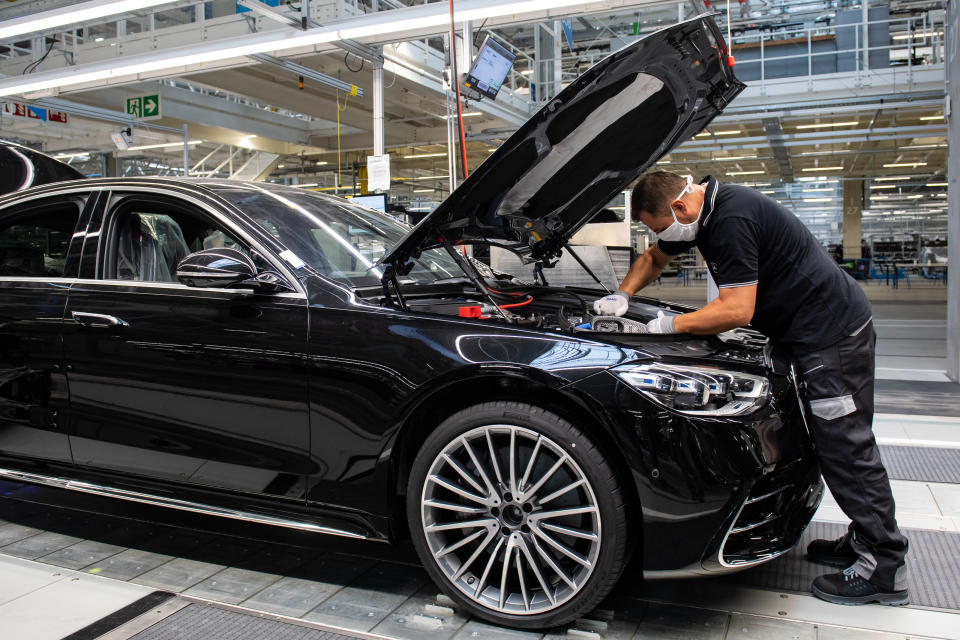Mood among German carmakers improves after a positive October

Germany’s automotive industry was feeling positive October, rating their business situation as much better than it was in September.
Munich’s Ifo economic institute reported that its business sentiment index for the car industry rose to minus 0.2 points in October from minus 20.4 points in September, a dramatic improvement in the space of one month.
“The demand for cars has increased noticeably,” head of the Ifo surveys Klaus Wohlrabe said in a statement. “That has significantly improved the mood amongst managers.”
READ MORE: Germany plans €2bn support to help auto sector switch to clean mobility
However, car chiefs said they were more pessimistic about the coming months, with the IFO indicator falling for the fourth month in a row, also based on the belief that the unusually high backlog of orders from September could be me maintained.
While Germany’s November lockdown to tackle rising COVID-19 cases does not include closing car plants or showrooms, it will certainly increase consumer insecurity about their economic wellbeing for the rest of the year.
READ MORE: Merkel says ‘virus punishes half-heartedness’ as German lockdown starts
Capacity utilisation in the industry surged to 86% in October, from 73% in July. New car registrations of cars from German carmakers increased by 5% in October from the month before, boosted by sales of hybrid and all-electric vehicles.
While carmakers are cautiously going ahead with plans to increase production, they are on the other hand planning staff cuts.
They are expecting foreign markets to loss a bit of puff in the coming months — the UK, the US and China are the three most important export markets for German cars — which could put a dampener on the German car industry. It exported nearly 75% of its cars in 2019.
READ MORE: Germany sets aside €10bn to compensate firms for November losses
"While the main European customer countries Great Britain, France, Italy or Spain and also the USA are still firmly in the grip of the corona pandemic, the demand for German cars in China is picking up again noticeably," Oliver Falck, head of the Ifo Center for Industrial Organization wrote.
Total exports of German cars in the first three quarters of 2020 fell by 34% compared to the previous year, and would have fallen more if China had not emerged from the pandemic earlier than Europe and boosted car demand again.
Watch: What are negative interest rates?

 Yahoo Finance
Yahoo Finance 